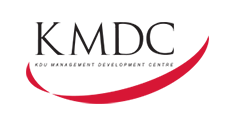It is a dream to be able to retire early, do what you love and still maintain a comfortable lifestyle. But creating the life you want is not so much about hard work as it is about planning. If you do not set goals and have a game plan, you will not get to the desired destination.
Financial planning is important because it helps you get a grip of where you are money-wise, at the moment, and where you are heading in the future. Once you have goals set, you can then work out what you need to do to achieve those goals.
Taking Financial Planning Lessons
I was working as a senior VP in the wealth management department of a bank. However, I was not a financial planner who helped individual clients achieve their financial goals. Instead I was responsible for the profit and loss (P&L) of the department – to drive revenue and at the same time maintain costs of the department.
I took up a financial planning course administered by Financial Planning Association of Malaysia, Certified Financial Planner (CFP) Certification Programme to further my financial career, but I got more out of it than expected. The programme has helped me understand financial fundamentals that I used in managing the division under my charge, and later in my own business.
I loved my work in banking, but ultimately, my passion is for the culinary arts. I left the financial industry, did my Masters in Finance from the University of Nottingham and eventually opened my cooking school, ‘At Nineteen Culinary Studio’ in 2010. The cooking and baking school that caters to all age groups and varying skill levels.
Building My Passion
When I had my mind made up to leave the security of a salaried job, the financial planning course really got me going in the right direction. I began to understand that all the fundamentals in the CFP certification modules are relatable and applicable to real life – my own life, in particular. I would not have been able to build the business and live my dreams if I had not taken the CFP certification programme.
All it takes is some financial planning, discipline and commitment. Admittedly, the road was not an easy one, but if you are determined, you will see the pot of gold at the end of the rainbow.
Armed with the know-how, I then started to chart my own financial plan. Saving a portion of my income each month consistently was part of the equation. In my early days, I only had a company car loan. So, having sufficient cash flow to cover and paying off credit card bills in full each month was priority.
Good Debts & Bad Debts
I learnt about good debts and bad debts. For example, a housing loan is a good debt because the asset you are financing is your home. Even if it is not your first home, a house in a good location will earn you capital gains. A bad debt is like a credit card debt, where the interest is high and there are no capital gains.
Frugality and being mindful of your spending is very important in achieving any financial goals. I learnt to have a budget and stuck to it with discipline, and reflected any spending decisions in terms of needs versus wants – is it must have or nice to have?
I was never a miser or Ms Scrooge and I do reward myself from time to time, but within limits. For instance, I love travelling. So, once a year, part of my bonus will be allocated towards a holiday.
The Power of Compounding Interest
I understood about the power of compounding interest. Once I have saved an investable amount, I put that into financial instruments that will yield higher returns than fixed deposits. One of the investment methods I used was to diligently withdraw the eligible portion from my EPF to invest in unit trusts that yield consistent dividends rather than capital gains. I chose to re-invest the dividends to get more units and of course greater returns.
Diversification is key too; not to put all my eggs in one basket. So, I often review my entire financial portfolio, divide the pie into various segments and decide on the proportion of each segment – e.g. 10%, 30%, 40% etc. – depending on the financial goals I wish to achieve and the timeline to achieve them.
Risks was another crucial aspect the programme has taught me. It is not only about balancing risks and rewards, but also having the foresight to insure against the unforeseeable. For me, taking up extra health insurance on top of what the company was covering me was important. You never know if something were to happen and you lose your job for medical reasons.
The rule of thumb is that savings alone will not make you rich. You have to invest. Investments will get you higher returns to enable you to reach your financial goals faster. For me, it has enabled me to “retire” early from work, follow my food passion and opened a little cooking school.
However, that is not to say I do not get off track with my finances occasionally. We are only human after all, but being able to get back on track is what matters. If you always keep the end goal in mind and you will know what the right decision for you is.
